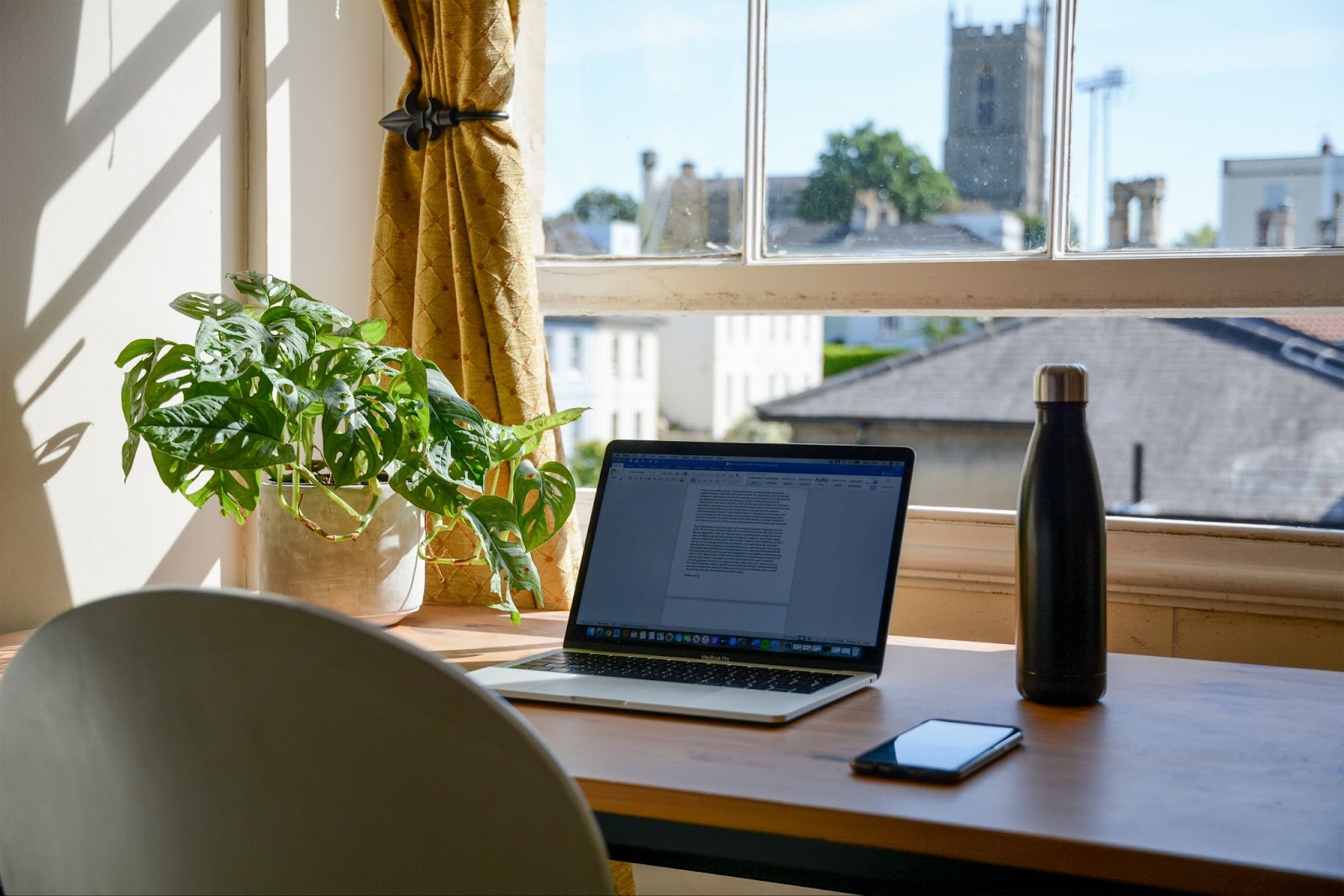0116 478 2389

Working From Your Bedroom? Here’s Ways to Divide Work Time From Sleep Time
The arrival of a global pandemic meant more people working from home than ever before. Many of us had to quickly transition to home working, often throwing together a makeshift workspace in no time at all.
But while lockdowns are now a distant memory, working from home for many people is here to stay. More and more workplaces are offering remote work as an option, as well as hybrid set ups with employees working from home for part of the week.
With home working now simply a fact of life, it’s vital that people divide work life from their home life, and with many using their bedroom as an office, it’s hard not to take work to bed with you, disrupting your sleep.
So to help you sleep soundly after a productive day at your desk, here’s our top tips for dividing your workspace from your sleep-space.
Buy a Dedicated Desk
This may seem like an obvious one, but a surprising number of people make the mistake of working from their bed. It may have worked when you were a teenager, studying for your exams, but working a full time job from your duvet is the single worst practice to engage in when trying to divide work and sleep.
Psychologically, you’ll begin to see your bed as a place for work rather than a place for slumber. Your bed will quickly become associated with the stresses and strains of the working day rather than relaxation. As you put your head down at night, you’ll find it hard to shake off thoughts about the working day; whether it’s a task you forgot to complete or a meeting you need to arrange the next morning.
Incorporating a dedicated desk into your room will allow you to demarcate a zone for work, while the rest of your space will be set aside for relaxation. If you’re short on space, that’s no problem - choose an extending desk that can save space when you’re not using it.
Put Your Equipment Away In A Drawer
Just like where you put yourself, the places you put your equipment are important too. If you spend all day working on your laptop, leaving it strewn across your bedroom with all your other equipment will make work seem like it never really ends.
Put your laptop, keyboard, mouse and any other work equipment away in a drawer. Closing that drawer at the end of the working day will become your equivalent of shutting the office door; it will create a mental divide telling your brain that work is packed away and over for another day.
If you use a desktop display, and have the space available, put that away too in a cupboard, removing any trace of work from your room. That way you’ll be able to doze off at the end of a long day with no reminders of work to get in the way.
Create a Corner Office
If you already have a desk, but it’s placed right in the middle of your room, or awkwardly next to your bed, you’ll be stuck with a big reminder of work in the centre of a space dedicated to relaxation.
If there’s a forlorn corner in your room, now’s the time to put it to good use. A corner desk is an excellent option to maximise your available space, while also creating an office area that doesn’t interfere with the rest of your bedroom. You’ll soon have a cosy workspace that sets the scene for productivity.
You could also choose a corner desk with included storage, offering you a way to store documents, books and other work-related items all in the same place.
Be Strict With Your Working Hours
Working from home offers us more flexibility with our working hours, but that flexibility has sometimes meant blurring the distinction between the work time and home time. Working from an office used to involve leaving a workplace at the end of the day, and leaving all the work associated with it behind. But at home, it’s easy to keep checking and replying to emails long after the working day has supposedly finished. This never ending cycle can make it very tricky to switch off before bed.
Create yourself a strict working schedule, and divide your time accordingly. If you finish work at 5.30pm, turn off your devices, silence your notifications, and let people know you’re out of office. Set aside time each evening to unwind at night without work getting in the way. Above all, don’t bring work to bed with you, and set your phone aside when it’s time to get ready for sleep.
Time To Get To Work (Or Bed)
Working from home has caused one of the biggest shifts in our daily lives for generations, and with such a big shift comes big consequences. The abrupt start to this transition means many of us saddled ourselves with half-baked home office solutions, but as ‘WFH’ now becomes long term, it’s time to start thinking about ways to make it a more sustainable part of our lifestyles.
Putting these tips into practice will ensure you stay productive, both in terms of the work you produce, and the amount of sleep you get. Explore our home office collection for a range of great ideas to further transform your personal workspace.

